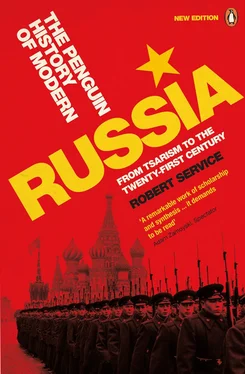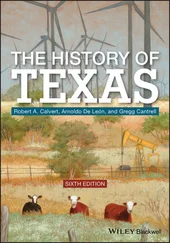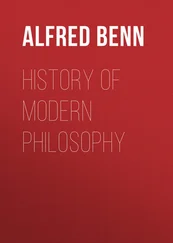Dimitrov, Georgi, 227
discontent, social, 81, 250–51, 297–300, 329, 358–9, 364, 371–2, 390, 410, 418, 423, 425, 473–4, 477, 518, 542, 554, 563–4dissenters (‘other-thinkers’), 381, 413–15, 449, 511; see also intelligentsia
divorce, 143, 417
Djilas, Milovan, 265, 305
doctors, 541
Doctors’ Plot (1952), 324–5, 332, 339
Dolgoruki, Prince Yuri, 323
Don Basin: miners rebel, 56; strikes, 472
Dostoevski, Fëdor, 11, 134, 207, 366, 415
drought (1946), 276
druzhinniki (vigilante groups), 361
Dubček, Alexander, 386–7, 483
Dublin, 530
Dudaev, Dzhokar, 521, 533
Dudintsev, Vladimir: By Bread Alone , 344
Dudko, Dmitri, 382, 476
Duma: formed and assembled, 1, 14–16; Nicholas II’s attitude to, 21–2, 29, 32; supports World War I, 27; and Nicholas II’s abdication, 33; impotence, 548; under 1998 constitution, 529, 550, 551, 553, 566
Dunkirk evacuation (1940), 258
Durnovo, Pëtr, 25
Dvinsk, 77
Dzhugashvili, Katerina (Stalin’s mother), 196
Dzhugashvili, Yakov (Stalin’s son), 285
Dzierżyński, Felix: supports plan to seize power, 61; heads Cheka, 74, 108; Polish origins, 85; taken hostage by Left Socialist-Revolutionaries, 103–4; advocates terror, 107–8; administrative agreement with colleagues, 110; interrogates Berdyaev, 137; disagreements with Lenin, 153
Dziuba, Ivan: Internationalism or Russification? , 391
East Berlin: Gorbachëv visits, 463
East Germany see German Democratic Republic
Eastern Europe: communist movements in, 302, 305; post-World War II policy on, 303, 305–12; Soviet purges in, 313; resents Soviet subjugation, 330, 553; and Warsaw Pact, 337; Soviet unpopularity in, 342, 353; easing of Soviet policy under Beria, 343; economic reforms, 385–6; Politburo and, 385–7; compliance demanded, 387; anti-Soviet developments, 409; and Gorbachëv’s non-interference policy, 442–3, 463–4, 481–3; communist collapse in, 483–4
economy after communism: real average income drops 529; financial collapse (1998), 530, 535; subsidies 534; devaluation (1998), 535; recovery (1999), 535–6; poverty, 541
education: encouraged by Bolsheviks, 140–42, 190–91, 205; privileged, 237, 320–21; and non-Russian languages, 367; discrimination abolished, 410; after communism, 567
Egypt, 352, 389
eight-hour day, 68
Eikhe, R.I., 213
Einstein, Albert, 318
Eisenhower, Dwight D., 272, 353
Eisenstein, Sergei, 249, 319
Eismont, Nikolai, 188
elections: to Constituent Assembly, 74, 81; Gorbachëv’s reforms on, 451, 460–61; to Congress of People’s Deputies (1989), 472–3, 475; under Yeltsin (1993), 523, 526–9; State Duma (1995), 530; Presidential (1996), 531; State Duma (1999), 552–3; Presidential (2000), 547; State Duma (2003), 552–3; Presidential (2004), 553; State Duma (2007), 559; Presidential (2008), 559
Emancipation Edict (1861), 6–7, 71
emigration: post-revolution, 88
Engels, Friedrich, 92–3, 136
engineers: courted by Bolsheviks, 95; success under NEP, 163; 1928 trial of, 175; protected, 194
environment: and pollution, 468, 518, 552
Epshtein, Avraam, 208
Erenburg, Ilya: The Thaw , 335
Erevan, 390
Estonia: demands autonomy, 40; support for Bolsheviks, 83; Germany acquires (1918), 84; Soviet republic established (1918), 107; granted independence, 128; awarded to USSR in 1939 Non-Aggression Treaty, 256–7; annexed by USSR, 258, 306, 398; Germans occupy (1941), 261; post-World War II settlement, 270, 306; SS units from, 287; post-World War II deportations, 300; culture downgraded, 316; and Khrushchëv’s denunciation of Stalin, 342; nationalism, 366, 456, 478; living standard, 423; protest demonstrations, 457, 473–4, 481; claims veto rights over Moscow laws, 473; independence demands, 482, 503; Yeltsin reassures, 489; declares sovereignty, 490; resists State Committee for the Emergency Situation, 502; declines to join Commonwealth of Independent States, 507; after communism, 537
Estonian National Front, 382
Ethiopia, 399
Europe: revolutions in, 120; post-World War II situation, 301–2, 305–8
European Union, 537, 538
exile (internal), 21–2
exports, 159
Extraordinary Commission see Cheka
factory workers see workers
Fadeev, Alexander, 319
Fall of Berlin, The (film), 315
family values, 246
famine: Volga region (1891–2), 5; and forcible acquisition of grain, 93; in Ukraine (1932–3), 184, 202, 207; in World War II, 285; post-World War II, 304; see also food supply
Fantomas (film series), 357
Far East: security in, 255–7, 308
farms, private, 542; see also Land Code
fascism: in Italy, 140, 170; popular fronts against, 230; and totalitarianism, 235; in Spain, 254
Fatherland (party), 547
February Revolution see revolution of February 1917
Federal Assembly, 527, 551, 558
Federal Security Service, 530, 545, 550
Federal Treaty (1992), 521
Federation Council see Council of the Federation
Federation of Independent Trade Unions, 542
Fëdorov, Boris, 522
Finland: status under empire, 13; demands autonomy, 40; Sejm disobeys Provisional Government, 60; granted independence, 69, 128; awarded to USSR in 1939 Non-Aggression Treaty, 256; winter war (1939–40), 257; joins EU, 537
First World War see World War I
500 Days Plan (1990), 492–3
Five-Year Plans: First (1928–32), 170, 176–9, 186, 188, 190, 198–9, 205, 208; Second (1933–38), 194, 208, 211; Fourth (1946–50), 303; Eighth (1966–70), 385, 406; Ninth (1971–6), 407; Twelfth (1968–92), 441
food supply: after 1917, 89–90; and malnutrition, 119; and intimidation, 208; 1930s improvements in, 249; and control of population, 278; to armed forces in World War II, 284–5; post-war inadequacy, 304; price rises under Khrushchëv, 364; imported, 467, 470; shortages under Gorbachëv, 472; and price rises under Gorbachëv, 492, 495; price controls lifted, 525; see also harvests; rationing
Food-Supplies Dictatorship, 104, 108–9
football, 559
forced-labour and camps see Gulag
Ford, Gerald, 399
Ford motor company, 177
Foros (Black Sea), 496, 498, 502
France: in Russo-British entente, 3; Imperial Russian disputes with, 24; in World War I, 25, 34, 78; intervenes in civil war, 102; loans to Russia, 158; diplomatic relations with USSR, 229; 1939 declaration of war, 256–7; 1940 defeat, 258; communist party follows Moscow line, 295, 306, 311; and conference on Cominform, 308; resists reparation demands on Germany, 308; in Suez war (1956), 343
Franco, General Francisco, 230
Franz Ferdinand, Archduke of Austria, 25
Franz Joseph, Emperor of Austria, 1
Free Trade Union Association, 414
fraud, IMF funds, 534
frivolity, 235, 477
Gagarin, Yuri, 351
Gaidar, Yegor, 505, 509–11, 512–14, 516, 521–3, 526–7, 529, 534
Gamsakhurdia, Zviad, 412
Gapon, Fr Georgi, 13, 204
gas, 536, 553, 562
gas industry, 525, 536, 553, 562
Gazprom, 526
Gdansk shipyards, 409
Geneva: 1955 conference, 353; Gorbachëv–Reagan meeting in (1985), 444, 463
Genghis Khan, 226
Genoa Conference (1922), 158
genocide, 202; see also deportation
gentry: land ownership and seizure, 15–16, 20, 34, 39, 53, 55–6, 67–8, 86, 91; see also aristocracy
Georgia: 1906 unrest, 13; and Provisional Government collapse, 60; as independent state, 83; Mensheviks in, 83; conflict with Armenia, 113; Soviet republic formed, 114, 207; reconquered (1921), 128; status, 129, 133; 1924 insurrection, 131; repressed, 201; riots over Khrushchëv’s denunciation of Stalin, 342; repressed under Khrushchëv, 369; living standard, 423; minorities in, 424; protest demonstrations (1989), 473–4; independence demands, 481; violence against Abkhazians, 481; declines to join Commonwealth of Independent States, 507; relations with Russia after 1991, 535, 555, 560
Читать дальше












